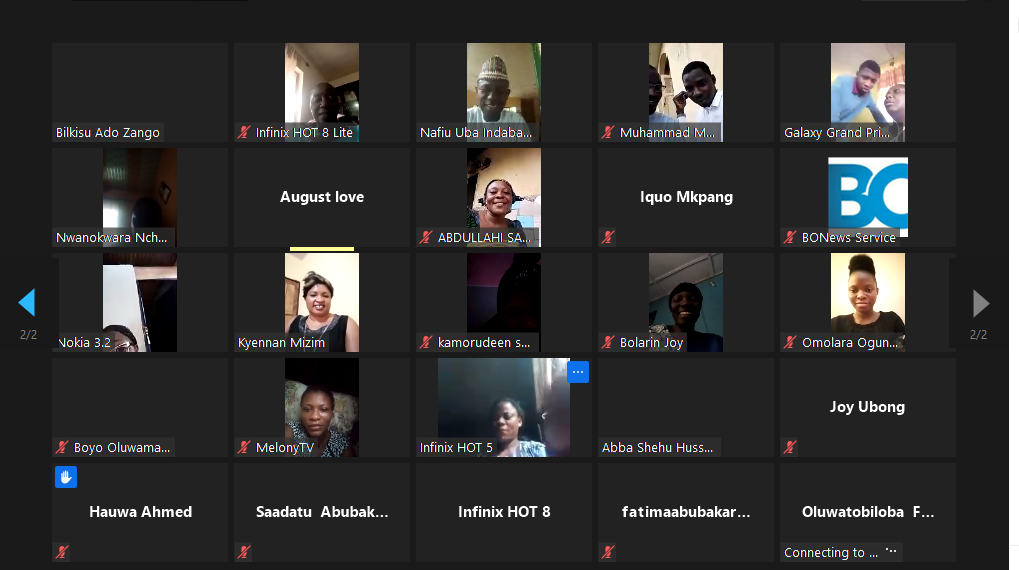BONews Service, an online development news platform, has trained women with disabilities, WWDS across Nigeria on improving the humanitarian and health systems to the needs of women disabilities.
The two-day online training which was supported by Urgent Action Fund-Africa was aimed at building the capacity of WWDs to demand for inclusion in all responses regarding to humanitarian and health systems in Nigeria, especially during the COVID-19 pandemic.
One of the facilitators at the training program, Ekaete Judith Umoh, National President, Joint National Association of Persons with Disabilities, JONAPWD and the Executive Director of FACICP Disability Plus explained that WWDs are mostly affected during humanitarian crisis especially because of the patriarchal nature of the African society.
She said, “as women, we are given the back seat because of the patriarchy system and as WWDs, we are further drawn to the back because of our disability. This means, we are doubly affected.
Umoh stressed that, “disability is a social construct and not about our impairment but certain barriers have made us to be at disadvantaged.”
She called on WWDs to be focused and consistent in their advocacies to ensure that disability-inclusion is attained in the country.
Dr. Adebukola Adebayo, Disability and Inclusive Development Consultant while speaking on “The Realities of Humanitarian Situations in Nigeria and the Need for More Visible Inclusion of WWDs in Response and Support Strategies” noted that persons with disabilities are strongly impacted when crisis occurs as evident during the COVID-19 pandemic.
Adebayo said, “Most WWDs experience a direct physical impact, sometimes causing new impairments. Many are psychologically, physically or sexually abused while many others suffer increased psychological stress and/or disorientation.”
He therefore urged the government to “put in place necessary legal and policy framework to ensure that all humanitarian programs are responsive to the issues and needs of WWDs.
“Strengthen both institutional and human capacities of MDAs responsible for delivering humanitarian interventions on disability-inclusion strategies.
“Provide support for WWDs and their organizations on how to respond to humanitarian crises.
“Provide grassroot or local government personnel with intensive training to better respond or communicate with those WWDs who shall be receiving aid from them,” he added.
On her part, Olorunisola Abe, Journalist and Fellow, Women Deliver who spoke to the women on ‘Understanding the Use of Good Communication Skills and ICT Strategies for Policy Advocacy’ charged the women to leverage on ICT to convey their messages to relevant stakeholders.
Abe said, “Social media is a vital tool to use in engaging relevant stakeholders and it helps in achieving prompt and positive responses.
“It is important that Disabled People Organizations, DPOs make effective use of ICT to strengthen their operations such as holding regular meetings, advocacies, and other operations.”
Earlier while giving her opening remarks, Blessing Oladunjoye, Publisher, BONews Service noted that the purpose of the training “is aimed at improving the responsiveness of humanitarian and health systems in Nigeria to the needs of WWDs by building your capacity to demand your rights to inclusion.
“We have taken time to ensure that participants are carefully selected across the country with key attention on various disability clusters so as to ensure we are able to put our needs and requests to the fore and demand for the inclusion that we deserve.”

